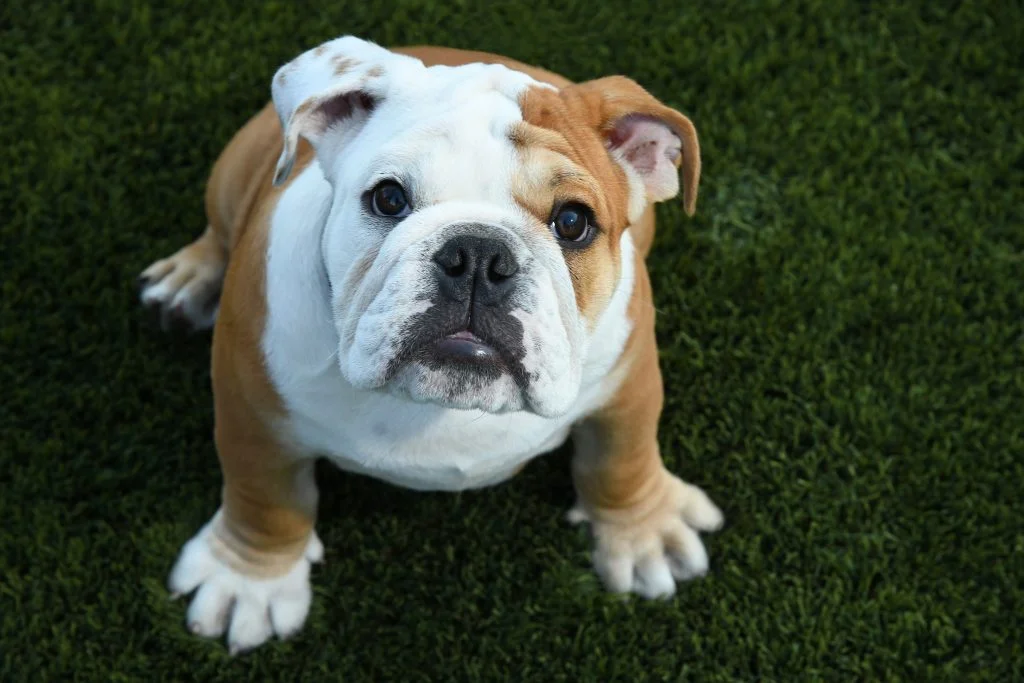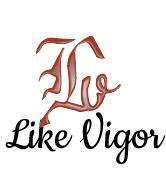
Bulldogs are iconic, with their distinctive appearance and charming personalities capturing the hearts of many. These lovable companions require special attention to their dietary requirements and overall well-being to thrive. This comprehensive guide aims to provide expert advice on Bulldog nutrition, grooming, exercise, and preventive healthcare, ensuring your Bulldog lives its best life.
Understanding Bulldog Health
Before delving into dog care specifics, it’s vital to grasp the common health issues affecting this breed. Bulldogs face unique challenges due to their anatomy and genetic predispositions.
Common Health Issues in Bulldogs
1. Brachycephalic Syndrome
Bulldogs have flat faces and shortened airways, predisposing them to breathing difficulties and overheating.
- Symptoms: Snorting, snoring, wheezing, and difficulty breathing, particularly in hot weather.
- Management: Keep Bulldog cool, avoid strenuous exercise in heat, and use harnesses for walks instead of collars to reduce airway pressure.
2. Skin Fold Infections
Skin folds on dog’ faces and bodies can trap moisture and bacteria, leading to skin infections.
- Symptoms: Redness, swelling, odor, and discharge in skin folds.
- Prevention: Regularly clean and dry skin folds, using veterinarian-recommended wipes or solutions.
3. Hip Dysplasia
Hip dysplasia, a common orthopedic issue, causes arthritis and lameness in dog due to improperly developed hip joints.
- Symptoms: Difficulty rising, reluctance to climb stairs, and limping.
- Management: Maintain a healthy weight, provide joint supplements, and engage in low-impact exercises.
4. Allergies
dog are prone to allergies, presenting as skin irritation, itching, and ear infections.
- Symptoms: Excessive scratching, chewing at paws, and skin redness or rash.
- Management: Identify and avoid allergens, such as certain foods or environmental triggers, with guidance from your vet.
Nutritional Needs of Bulldogs
Proper nutrition is paramount for dog health and vitality. Here’s what you need to know about feeding your dog:
1. High-Quality Diet
Opt for a balanced diet formulated for Bulldogs’ unique nutritional requirements.
- Protein: Choose animal-based sources like chicken, beef, or fish to support muscle health.
- Healthy Fats: Look for omega-3 and omega-6 fatty acids for skin and coat health.
- Carbohydrates: Select whole grains like brown rice or oats for energy and fiber.
2. Feeding Schedule
Establish a consistent feeding schedule to regulate weight and aid digestion.
- Frequency: Feed adult Bulldogs twice daily to prevent overeating and promote digestion.
- Portion Control: Adjust food quantity based on age, weight, and activity level to prevent obesity.
3. Avoiding Overfeeding
Bulldogs tend to gain weight easily, necessitating vigilance against overfeeding.
- Treats: Limit high-calorie treats, opting for healthier options like vegetables or lean meats.
- Table Scraps: Avoid feeding table scraps to prevent weight gain and digestive issues.
4. Hydration
Ensure dog have access to clean, fresh water at all times to prevent dehydration.
- Hydration: Monitor water intake, especially during hot weather or after exercise, to prevent heatstroke and dehydration.
Grooming and Hygiene
Regular grooming is essential for dog health and comfort. Here’s how to maintain their hygiene:
1. Bathing
Regular baths remove dirt, oil, and odor from Bulldog coats.
- Frequency: Bathe Bulldogs every 4-6 weeks or as needed, considering activity level and skin condition.
- Shampoo: Use a mild, hypoallergenic dog shampoo to avoid skin irritation.
- Drying: Thoroughly dry dog after bathing, paying attention to skin folds to prevent moisture-related infections.
2. Brushing
Regular brushing reduces shedding and maintains coat health.
- Frequency: Brush Bulldogs weekly with a soft-bristled brush or grooming mitt.
- Focus Areas: Pay extra attention to skin folds, ears, and tails where dirt accumulates.
3. Dental Care
Good dental hygiene prevents dental issues like tartar buildup and gum disease.
- Brushing: Brush teeth daily with dog-specific toothpaste and toothbrush.
- Dental Chews: Offer dental chews to promote chewing and clean teeth.
- Professional Cleaning: Schedule regular dental cleanings with your vet.
4. Ear Care
Regular ear cleaning prevents ear infections in dog with folded ears.
- Cleaning Solution: Use vet-recommended ear cleaning solution to wipe ears.
- Frequency: Clean Bulldog ears weekly or as needed, checking for signs of infection.
Exercise and Activity
Bulldogs require regular exercise for physical and mental well-being. Here’s how to keep them active:
1. Daily Walks
Take Bulldogs for daily walks to provide exercise and mental stimulation.
- Duration: Aim for 30 minutes to an hour daily, adjusting for age and fitness.
- Leash Training: Use harnesses to prevent neck strain.
2. Indoor Activities
Provide indoor activities and toys for mental stimulation.
- Puzzle Toys: Engage dog with puzzle toys to keep them mentally active.
- Training: Teach dog new tricks or commands for mental stimulation.
3. Supervised Play
Supervise dog play to prevent injuries.
- Playmates: Arrange playdates with other dogs for socialization.
- Limits: Avoid activities that strain joints or cause overexertion.
Starting Bulldog Care
- Veterinary Care: Schedule a vet visit for health check-ups, vaccinations, and preventive care.
- Quality Diet: Choose a balanced diet suitable for Bulldogs’ nutritional needs.
- Grooming Routine: Establish a regular grooming routine to maintain hygiene.
- Exercise Plan: Develop a daily exercise plan tailored to your Bulldog’s needs.
- Love and Attention: Provide dog with love, attention, and companionship to ensure their happiness and well-being.
By following these guidelines, you can ensure your dog enjoys a healthy, happy life as your cherished companion. Remember, each Bulldog is unique, so tailor care to your pet’s individual needs and consult your vet for personalized advice.
Bulldogs, with their endearing wrinkles and charming personalities, have earned a special place in the hearts of dog enthusiasts. However, despite their lovable nature, Bulldogs are prone to certain health issues that can impact their quality of life. In this comprehensive guide, we’ll delve into the common major diseases that afflict dog, drawing insights from authentic medical sources and research papers to equip pet owners with the knowledge and solutions needed to ensure their furry friends lead happy, healthy lives.
Understanding the Health Challenges Faced by Bulldog
Bulldogs are known for their distinctive appearance, characterized by their stout bodies, wrinkled faces, and pushed-in noses. While these features contribute to their unique charm, they also predispose dog to a range of health issues, including:
- Brachycephalic Syndrome: dog, like other brachycephalic breeds, have short, flat skulls and narrowed airways, which can lead to breathing difficulties. Symptoms may include snorting, snoring, wheezing, and exercise intolerance.
- Hip Dysplasia: A common orthopedic condition, hip dysplasia occurs when the hip joint develops abnormally, leading to discomfort, stiffness, and lameness. dog may exhibit reluctance to move, bunny hopping, or difficulty rising from a seated position.
- Cherry Eye: Cherry eye is a condition where the gland of the third eyelid prolapses, resulting in a red, swollen mass in the corner of the eye. While not usually painful, cherry eye can cause irritation and require surgical correction to prevent complications.
- Skin Fold Dermatitis: dog adorable wrinkles can trap moisture and bacteria, leading to skin fold dermatitis. Symptoms may include redness, itching, odor, and discharge. Regular cleaning and drying of skin folds are essential to prevent infection.
- Heat Sensitivity: dogare sensitive to heat due to their short muzzles and compromised respiratory systems. They are at risk of heatstroke, which can be life-threatening. It’s crucial to keep Bulldogs cool, provide ample shade and water, and avoid strenuous exercise in hot weather.
Proactive Solutions and Remedies from USA Doctors
- **Brachycephalic Syndrome To alleviate breathing difficulties, Bulldogs may benefit from weight management, avoiding strenuous exercise, and using a harness instead of a collar to reduce pressure on the neck. Surgical procedures such as stenotic nares correction or soft palate resection may be necessary in severe cases.
- **Hip Dysplasia: Treatment for hip dysplasia may include weight management, physical therapy, joint supplements (e.g., glucosamine and chondroitin), and non-steroidal anti-inflammatory drugs (NSAIDs) to manage pain and inflammation. In advanced cases, surgical options like total hip replacement or femoral head ostectomy may be considered.
- Cherry Eye: Surgical correction is typically recommended for cherry eye, involving repositioning or removal of the prolapsed gland. Prompt veterinary attention is essential to prevent complications such as dry eye or corneal ulcers.
- Skin Fold Dermatitis: Regular cleaning and drying of skin folds with a gentle, pet-safe cleanser can help prevent skin fold dermatitis. Your veterinarian may prescribe topical or oral antibiotics if infection occurs. Keeping your Bulldog’s weight in check can also reduce skin fold irritation.
- Heat Sensitivity: Protect your Bulldog from heatstroke by providing ample shade, access to fresh water, and avoiding outdoor activities during peak temperatures. Use cooling mats, fans, or air conditioning to keep them comfortable in warm weather.
Table of Contents
In conclusion, Bulldogs are cherished companions known for their loyalty and affection. By being vigilant about their health and proactive in addressing common diseases, pet owners can ensure that their dog enjoy a fulfilling life full of tail wags and slobbery kisses. With proper care, attention, and guidance from qualified veterinarians, Bulldogs can overcome health challenges and thrive as cherished members of the family.



